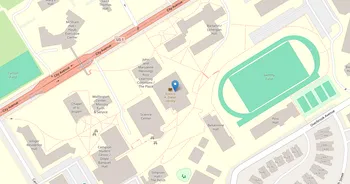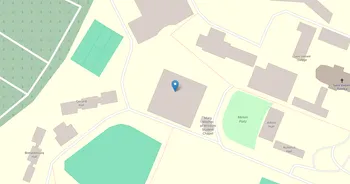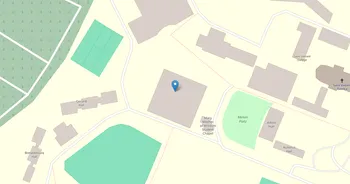Rosemont College : Overview, Courses, Scholarships & Rankings
About Rosemont College
Set on a leafy Main Line campus outside Philadelphia, Rosemont College is known for seminar-style learning, strong work in the humanities and social sciences, and practical study in the sciences and business. Students use a library and learning commons, studios and labs, residence halls, athletics space, and support like advising, tutoring, counseling, and a career center. Its Catholic heritage, shaped by the Society of the Holy Child Jesus, keeps the focus on purpose and service.
Life feels close-knit and active. Expect clubs, service projects, arts nights, and low-key coffeehouse gatherings, plus fitness, intramurals, and green space to breathe. Career prep leans on internships across Philadelphia and a regional network in schools, nonprofits, health, and creative fields. The Main Line brings cafes and shops, and the city adds museums, music, and sports. Small by design, it is a place where your voice really carries.
Key Institutional Details
Contact & Profile
Academic & Institutional
Academic Programs & Fields of Study
Rosemont College offers 29 degree programs across 14 major academic fields, graduating approximately 194 students annually. The most popular fields by graduate volume are Business (5 programs, 68 graduates), Psychology (3 programs, 34 graduates), Security & Safety (2 programs, 29 graduates), Education (5 programs, 15 graduates) and English (2 programs, 10 graduates). Explore program details, award levels, and graduate demographics below.
Business (5 programs, 68 graduates)
Business Administration, Marketing and Entrepreneurship
| Program Name | Graduates | Gender Distribution | Award Levels | CIP Code |
|---|---|---|---|---|
| Business Administration and Management | 53 |
|
Associate's
Bachelor's
Master's
|
52.0201 |
| Organizational Leadership | 7 |
|
Postbac Cert.
Master's
|
52.0213 |
| Marketing Management | 5 |
|
Bachelor's
|
52.1401 |
| Finance, General | 2 |
|
Bachelor's
|
52.0801 |
| Accounting | 1 |
|
Bachelor's
|
52.0301 |
Psychology (3 programs, 34 graduates)
Psychological Sciences, Mental Health and Behavioral Studies
| Program Name | Graduates | Gender Distribution | Award Levels | CIP Code |
|---|---|---|---|---|
| Counseling Psychology | 18 |
|
Master's
|
42.2803 |
| Applied Psychology | 9 |
|
Bachelor's
|
42.2813 |
| General Psychology | 7 |
|
Bachelor's
|
42.0101 |
Security & Safety (2 programs, 29 graduates)
Emergency Management, Law Enforcement and Public Safety
| Program Name | Graduates | Gender Distribution | Award Levels | CIP Code |
|---|---|---|---|---|
| Criminal Justice and Safety Studies | 19 |
|
Bachelor's
|
43.0104 |
| Homeland Security | 10 |
|
Master's
|
43.0301 |
Education (5 programs, 15 graduates)
Educational Sciences, Teaching Methods and Pedagogy
| Program Name | Graduates | Gender Distribution | Award Levels | CIP Code |
|---|---|---|---|---|
| Higher Education Administration | 4 |
|
Master's
|
13.0406 |
| Elementary Education | 4 |
|
Bachelor's
|
13.1202 |
| General Education | 3 |
|
Master's
|
13.0101 |
| Reading Teacher Education | 3 |
|
Master's
|
13.1315 |
| Educational Leadership and Administration | 1 |
|
Master's
|
13.0401 |
English (2 programs, 10 graduates)
English Literature, Creative Writing and Literary Analysis
| Program Name | Graduates | Gender Distribution | Award Levels | CIP Code |
|---|---|---|---|---|
| Creative Writing | 7 |
|
Bachelor's
Master's
|
23.1302 |
| English Language and Literature | 3 |
|
Bachelor's
|
23.0101 |
Communication (2 programs, 9 graduates)
Media Communications, Journalism and Public Relations
| Program Name | Graduates | Gender Distribution | Award Levels | CIP Code |
|---|---|---|---|---|
| Publishing | 5 |
|
Master's
|
09.1001 |
| Speech Communication and Rhetoric | 4 |
|
Bachelor's
|
09.0101 |
Social Sciences (3 programs, 7 graduates)
Sociology, Anthropology and Political Science Studies
| Program Name | Graduates | Gender Distribution | Award Levels | CIP Code |
|---|---|---|---|---|
| Criminology | 4 |
|
Bachelor's
|
45.0401 |
| Political Science and Government | 2 |
|
Bachelor's
|
45.1001 |
| Sociology | 1 |
|
Bachelor's
|
45.1101 |
Health (1 programs, 7 graduates)
Healthcare Professions, Medical Sciences and Clinical Practice
| Program Name | Graduates | Gender Distribution | Award Levels | CIP Code |
|---|---|---|---|---|
| Health Administration and Management | 7 |
|
Postbac Cert.
Master's
|
51.0701 |
Biological Sciences (1 programs, 5 graduates)
Life Sciences, Biotechnology and Biomedical Research
| Program Name | Graduates | Gender Distribution | Award Levels | CIP Code |
|---|---|---|---|---|
| Biology and Biological Sciences | 5 |
|
Bachelor's
|
26.0101 |
Arts (1 programs, 4 graduates)
Fine Arts, Design Studies and Creative Performance
| Program Name | Graduates | Gender Distribution | Award Levels | CIP Code |
|---|---|---|---|---|
| Studio Arts, General | 4 |
|
Bachelor's
|
50.0702 |
Admission Requirements & Test Scores
Comprehensive overview of admission criteria, standardized test score ranges, and application requirements for prospective students at Rosemont College.
Application Requirements
Data based on IPEDS for 2022-2023 academic year. Test score ranges represent the middle 50% of admitted students (25th-75th percentile). Requirements may vary by program.
Tuition, Fees & Estimated Costs
Overview of tuition rates, housing, and other annual education expenses for undergraduate and graduate students
Financial Aid & Student Support
Summary of scholarships, grants, student loans, and financial aid statistics for undergraduate students
Student Success Metrics
Graduation rates and post-graduation earnings to help assess student outcomes and long-term value of education.
Loan Burden & Repayment Outcomes
Breakdown of loan repayment rates and student debt levels by income and dependency status.
Frequently Asked Questions
Find answers to the most common questions about Rosemont College
How much does it cost to attend Rosemont College?
The annual tuition at Rosemont College is $22,170 for in-state students. When including room and board, books, and other expenses, the total estimated cost is approximately $38,921 for in-state students. Additional costs include room and board $13,530 and books and supplies $1,400.
Data based on IPEDS program completions for 2022-2023 academic year. Tuition and cost estimates are approximate and may not include all fees, personal expenses, or transportation costs.
What academic programs and degree levels does Rosemont College offer?
Rosemont College offers 29 academic programs across 14 major fields of study, with available degree levels: Associate's, Bachelor's, Postbac Cert., Master's.
Most popular program areas include:
- Business Administration, Marketing and Entrepreneurship (5 programs)
- Psychological Sciences, Mental Health and Behavioral Studies (3 programs)
- Emergency Management, Law Enforcement and Public Safety (2 programs)
- Educational Sciences, Teaching Methods and Pedagogy (5 programs)
- English Literature, Creative Writing and Literary Analysis (2 programs)
Data based on IPEDS program completions for 2023-2024 academic year. Numbers reflect programs where students graduated, not all offered programs.
What is the acceptance rate for Rosemont College?
Rosemont College has an 74.5% acceptance rate and a 8.6% yield rate, making it selective.
Admission statistics breakdown:
- Total applicants: 1,578
- Students admitted: 1,176
- Students enrolled: 101
Data based on IPEDS for 2022-2023 academic year. Admission statistics may vary by program and application cycle.
What financial aid and scholarships are available at Rosemont College?
Rosemont College provides financial aid to 17% of first-time, full-time students, with average grants of $17,563 and average loans of $10,506.
Average financial aid amounts by type:
- Pell grants: $4,963
- State/Local grants: $4,186
- Institutional grants: $12,874
- Federal loans: $6,788
The university supports 78 students with grants and 78 students with loans annually.
Data based on IPEDS for 2022-2023 academic year. Financial aid amounts and percentages may vary by program, enrollment status, and individual circumstances.
What is the average salary for Rosemont College graduates?
Rosemont College graduates earn a median salary of $40,852 after 6 years and $48,555 after 10 years.
The salary range 10 years after graduation spans from $28,444 (25th percentile) to $68,061 (75th percentile), with top earners reaching $89,300 (90th percentile).
Data based on IPEDS for 2022-2023 academic year. Salary data reflects graduates who received federal financial aid (approximately 60% of all graduates). Actual earnings may vary significantly based on program, location, and individual circumstances.
Related Universities




Found something useful? Help others discover it too! Share with friends, on social media, or save for later - every share helps someone find the information they need.